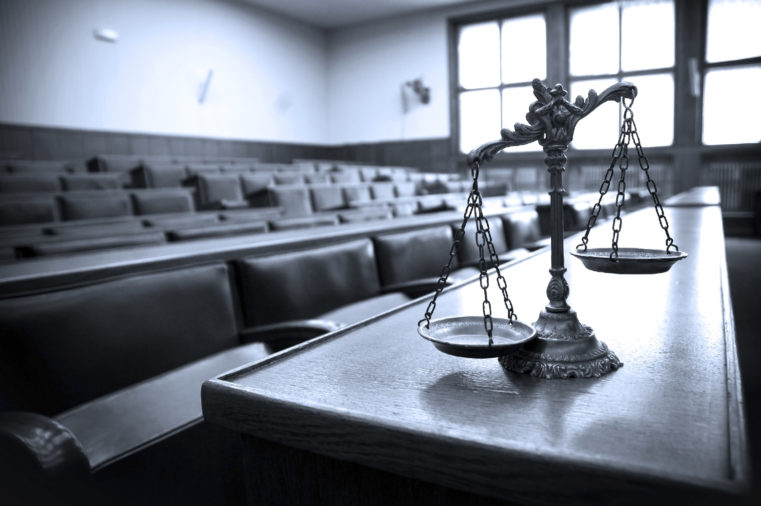
17 Aug Now That Trial Is Over, What Comes Next?
Trial is the final hearing date in your case and is the process of each side putting on their evidence, refuting the other side’s evidence, and the delivery of opening and closing arguments. After trial, the court enters a judgment. But does this mean the case is officially over?
Not quite. Once a judgment is entered, it signifies the court’s decision on the case and the rights and obligations of the parties involved. However, there are still various tasks and filings that can occur after the judgment, depending on the circumstances of the case and the actions of the parties. The post-judgment process refers to the legal procedures and actions that take place after a judgment has been issued by a court.
Parties use post-trial motions to alert the trial court of errors it may have committed, affording it to make proper corrections. Specifically, under Illinois law, any party may, within 30 days after the entry of the judgment, file a motion for a rehearing, or a retrial, or a modification of the judgment, or to vacate the judgment. 735 ILCS 5/2-1203. Additionally, relief after 30 days but before 2 years after the judgment, may be petitioned under rare circumstances where there is new evidence that wasn’t presented at trial. 735 ILCS 5/2-1401. Note that the power to grant these motions rests solely on the discretion of the trial court. Finally, within 30 days of the last judgment, a party may file an appeal which asks a higher court to review the order of the trial court and overturn it.
Listed below are the most common forms of post-trial motions a party has available to him/her:
- Motion to reconsider. A motion to reconsider seeks to persuade the court to change its ruling or a specific part of its ruling based on alleged errors. There are three main errors motions of reconsider rely on. First, error of law, which alleges that the court applied the law incorrectly. Second, error of fact, is a type of allegation that argues there were factual considerations that failed to be considered or were not known at the time of the original decision. And third, manifest of injustice; this is rare but will allege that the decision was fundamentally unfair to the moving party. These motions must be filed within 30 days of the final judgment.
- Motion to modify. A motion to modify is a filing that requests a change or adjustment to the original judgment. These motions most commonly arise when circumstances have changed since the last entry. Thus, motions to modify are most common in parental allocation cases. These motions must be filed within 30 days of the final judgment.
- Motion to vacate. A motion to vacate prays that the trial court set aside the final judgment based on legal errors. Often, these motions will allege that the movant was not able to properly present their side of the case. These types of errors range from lack of jurisdiction, clerical errors, misrepresentation or fraud by the opposing party, or violation of due process. These motions must be filed within 30 days of the final judgment.
- Appeal. An appeal is similar to a motion for reconsideration except it asks a higher court to review the trial court’s decision. A notice of appeal must be filed within 30 days of the judgment that is being appealed. This deadline will be tolled by the filing of a motion to reconsider. Thus, you will have 30 days from the date that a motion to reconsider is decided to file an appeal. In order to appeal, the appealing party must have “grounds”. This means that you must point to a specific error made by the court during the trial. Grounds for appeals generally include:
- Error of law: Alleges that the judge applied the wrong legal standard or rule to the issue at hand. This will generally occur if the judge did not follow the statute or case law that is intended to apply in the present case’s circumstances.
- Error regarding facts: In domestic cases, the judge is the main “fact-finder” (as opposed to a jury). This gives them the opportunity to examine evidence and testimony first-hand. Thus, higher courts will generally lend them great discretion in factual rulings unless it is clearly erroneous. This is the most difficult claim to make on appeal.
- Abuse of discretion: The trial court has broad discretion including ruling on what evidence gets admitted, granting or sustaining objections, or granting proposed agreements. Appealing for abuse of discretion argues that the judge makes an error when using this discretion. The appellant (the party making the appeal) will have to show that the evidence produced at trial clearly does not support the judge’s decision.
There are broad options for post-judgment motions, but it’s important the motion is timely filed or you will lose the ability to raise the issue to the trial or appellate court. The type of post-trial motion that may be applicable or available in your case will be dependent on the issues of your case. #GQLaw can assist with post-trial motions in the event you are unhappy with your judgment. If you have any questions regarding post-judgment proceedings or are seeking representation in post-judgment proceedings, please reach out to discuss your matter.

